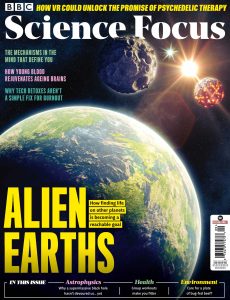
BBC Science Focus Magazine – September 2023
English | 92 pages | pdf | 168.75 MB
At the start of the year, the James Webb Space Telescope moved our horizons. It enabled us to see deeper into space and further back in time than ever before. Since then, Webb has provided new discoveries at an almost metronomic pace. It’s shown us some of the earliest, complex molecules in space; uncovered more black holes than we thought there were; allowed us to examine the birth of stars in unprecedented detail and much more besides. Suffice to say, it’s been a productive first year for Webb. So it might surprise you to learn that NASA is already working on its successor: the Habitable Worlds Observatory (HWO).
Why so soon? Well, the simple answer is that projects like these take decades to design, develop and build: one era-defining project, whether it be Webb or HWO, is nominated by NASA to pursue at the start of each decade. But I also like to think that it’s because we’re finally, properly pushing to answer to the biggest question in science: are we alone in the Universe? Or, more specifically, is Earth, and its ability to support life, unique?
To answer this question, the HWO will be equipped with sensors that scan a whole swath of the light spectrum, so it can determine what molecules are present in a distant planet’s atmosphere. It will also be built with repair and servicing in mind, so that, unlike Webb, it can avoid lengthy delays during the construction process. Head to p56 to find out what we know about the project so far.
And if, like me, you’re deeply curious about the search for extraterrestrial life, then I urge you to seek out our Instant Genius podcast. In September we’re talking to Harvard Prof Avi Loeb, who’s been searching for alien artefacts here on Earth.
Enjoy BBC Science Focus Magazine September 2023 issue!
Daniel Bennett, Editor
Download from: